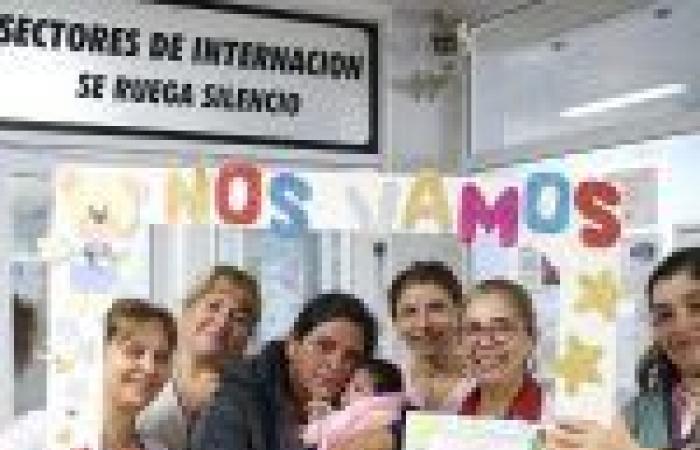
In a sanitary context where personalized, comprehensive and quality attention marks the difference, the Ministry of Public Health of Tucumán, under the management of Dr. Luis Medina Ruiz, is positioned again at the forefront. On this occasion, he does it through the Maternity Institute, where a highly specialized team conducted unique twin fetal intervention in the public health system of Argentina.
The intervention was possible thanks to the articulated work of the Fetal Medicine Unit, created in 2017 and coordinated by the doctor Sebastián Papalardo. This unit is made up of an interdisciplinary group of professionals with excellent training in fetal medicine, who address the accompaniment, monitoring and treatment of high -risk pregnancies, complex pathologies and multiple gestations.
“The unit not only provides monitoring of pregnancies with complications, but also offers prenatal and postnatal advice, psychological, genetic, neonatological and obstetric care.
Among the most prominent services are intrauterine interventions, a complex branch of medicine that requires precision technology and a highly trained human team. Such is the case of the ultrasound service, by the doctor Wilson Ravenaukey piece in the gear of this unit.
“We receive patients with suspicions of malformations or genetic alterations. Our work begins with the diagnosis, but we quickly articulate with all the unit to provide complete advice: from the genetic area to the neonatology and pediatric surgery,” explains Dr. Ravenau. It also highlights the work in fetal therapy, where procedures are planned in the uterus with the aim of giving the best life opportunity to babies.
Recently, this team carried out an intervention that marks a before and after in the country’s public fetal medicine. It was an intrauterine surgery in a monocorial twin pregnancy, that is, where both fetuses share the same placenta. In these cases, the so-called Feto-Fetal Transfusion Syndrome may occur, where one of the babies transfers blood to the other, seriously compromising their lives.
“The solution to this complication is surgical: a fetoscope and a argon laser is used to section the blood vessels that communicate to both fetuses, allowing each one to develop independently,” says Ravenau. This intervention of the highest complexity was possible thanks to the synchronized work of the complete team: ultrasound, neonatologists, surgeons, psychologists, geneticists and obstetricians.
The most remarkable thing is that this surgery was performed in a public hospital, an unpublished made in Argentina. “There is no other public center in the country that performs this type of procedures. It is a pride for Tucumán and for our health system,” says Papalardo.
This achievement is not an isolated event. It is the reflection of a health policy that prioritizes professional training, investment in technology and equity in access to health. Under the driving of the doctor Luis Medina Ruizthe Ministry of Public Health of Tucumán continues to bet on a model of quality, human and vision care.





